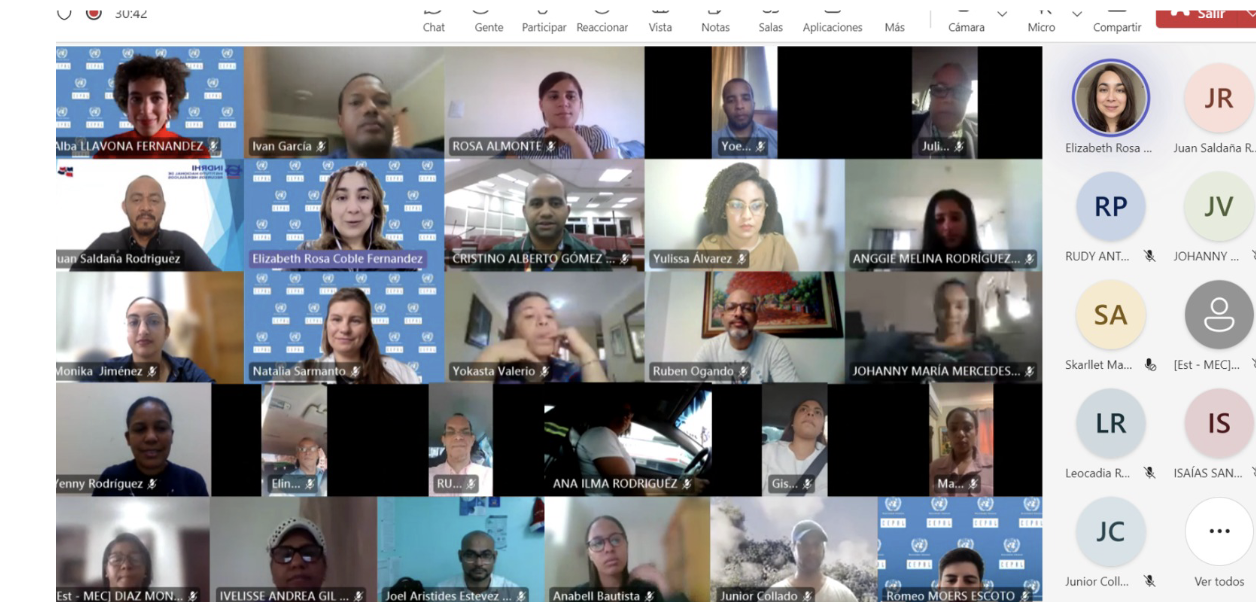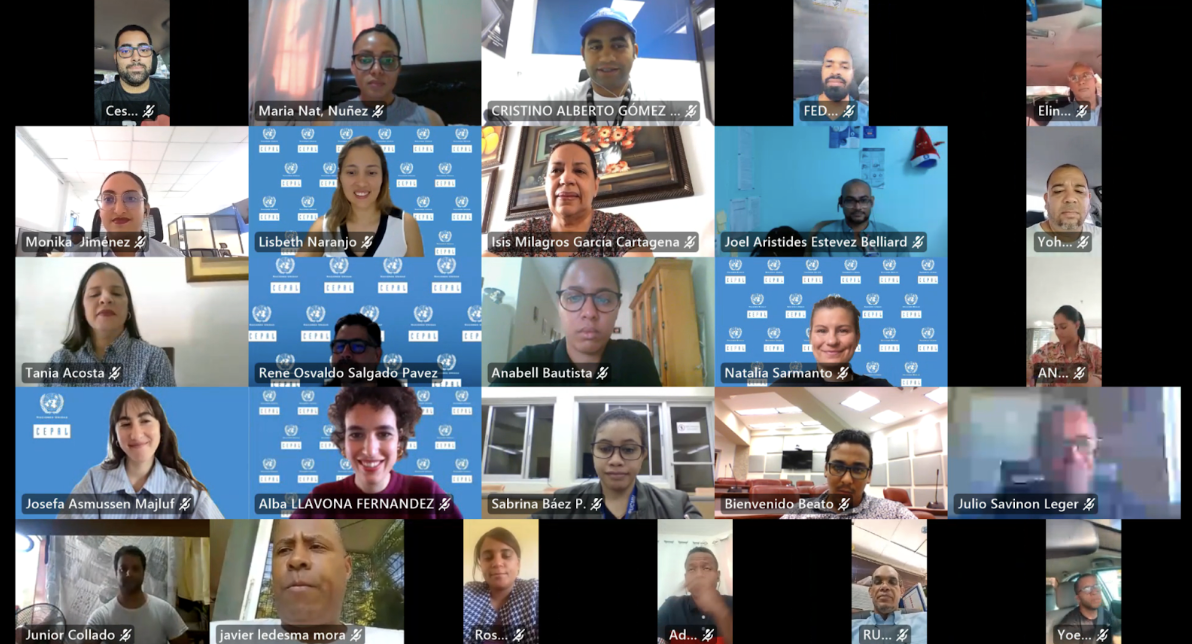ROSA: Water Governance in Latin America and the Caribbean: Challenges and Tools (Session 3) - Dominican Republic
Work area(s)
Topic(s)
The third training session of the Water Sustainability Network and Observatory (ROSA) project for the Dominican Republic, titled “Water Governance in Latin America and the Caribbean: Challenges and Tools,” brought together experts and officials to analyze critical challenges in water resource management in the region. During the event, topics such as the unequal distribution of water, the impacts of climate change, and the importance of effective water governance for achieving the Sustainable Development Goals (SDGs), particularly SDG 6, were discussed. The training featured notable contributions from representatives of ECLAC and the National Institute of Hydraulic Resources (INDRHI), who provided tools and strategies to enhance water governance.

The training was inaugurated by Silvia Saravia Matus, ECLAC Officer in charge of water issues, on October 25. She emphasized the centrality of water as a key resource for development, the environment, and public health in Latin America and the Caribbean, highlighting the need to strengthen water governance in the region. Among the participants were representatives from INDRHI and Licenciado Saldaña, who provided insights into the specific challenges faced in the Dominican Republic.
The session was divided into several thematic interventions. Natalia Sarmanto, Water Resources Expert from ECLAC, opened the dialogue with an analysis of the current state of water resources in the region and the governance gaps necessary to meet SDG 6. She was followed by Lisbeth Naranjo, also a Water Resources Expert from ECLAC, who shared recommendations for overcoming these challenges, focusing on the implementation of investment policies and institutional strengthening.
One of the main topics was the “Water-Energy-Food Nexus” approach, presented by Alba Llavona, Water Resources Expert from ECLAC. This approach provides a valuable tool for coordinating intersectoral policies and promoting sustainable and efficient water management. Attendees were encouraged to actively participate by sharing their experiences and perspectives on water governance in their respective contexts.
The session concluded with a closing message, in which the organizers announced future training sessions and on-the-ground technical assistance scheduled for 2025 in the Dominican Republic, focusing on circular economy applied to wastewater treatment plants (WWTPs).
Related content

ROSA: International Mechanisms on Water Resources: Results and Progress of Major Regional and Global Events - Dominican Republic (Session 2)
On October 18th of 2024, the Dominican Republic participated in the second online training entitled “International Mechanisms on Water Resources: Results and Progress of the Main Regional and Global…

ROSA: Application of circular economy principles in the drinking water and sanitation sector in the Dominican Republic (Session 1)
On October 9th, 2024, the first online training session for the Dominican Republic entitled “Application of circular economy principles in the drinking water and sanitation sector” was held. This…